Tutorial
FABLANG ‐ The Language and Dialect Factory: a platform for developing dialects and accents with speech technologies.
Introduction
The official website of FabLang: https://acapela-fablang.com
The FabLang project has the mission of creating a web platform that will allow Acapela Group and its customers to develop new languages, dialects and voices with accents ‐ often poorly funded ‐ that are not yet available.
Home Page Overview
The home page provides access to different sections, which are described below.
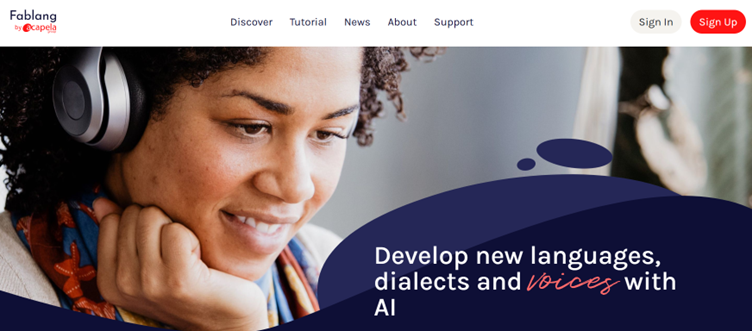
Discover and Test Available Languages
You have the opportunity to test the text-to-speech (TTS) technologies developed by Acapela within the FabLang project. Simply click on Discover in the main menu on the home page. This feature allows for easy testing without the need for login or registration.
Steps to Test a Language
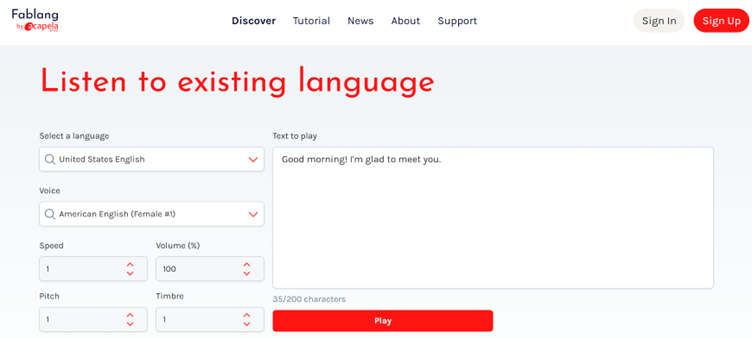
- Select a test language from the available options (new languages may become available later):
- United States English
- Chinese Mandarin (China)
- French (France)
- German (Germany)
- Hungarian (Hungary)
- Icelandic (Iceland)
- Hindi (India)
- Italian (Italy)
- Japanese (Japan)
- Dutch (Netherlands)
- Polish (Poland)
- Portuguese (Portugal)
- Russian (Russian Federation)
- Arabic Standard (Saudi Arabia)
- Korean (South Korea)
- Galician (Spain)
- Spanish (Spain)
- Turkish (Turkey)
- Select a voice. Seven voices are available: four female and three male.
New voices could be added later. - Type the text into the Text to Play window and press the Play button.
- The audio will be played through your sound card.
- Provide feedback by rating the quality of the system.

News
The News section provides updates about the platform.

About
The About section explains the project's goals and purpose.

Steps to Register
To use the platform for uploading data, an identification process is required.
- Click Sign Up on the home page.
 Feel free to enter all information for completing the registration procedure and read and accept the general conditions of use.
Feel free to enter all information for completing the registration procedure and read and accept the general conditions of use. - Fill in all required information and accept the general conditions of use.

- Submit the registration form.
- You will receive a confirmation email.

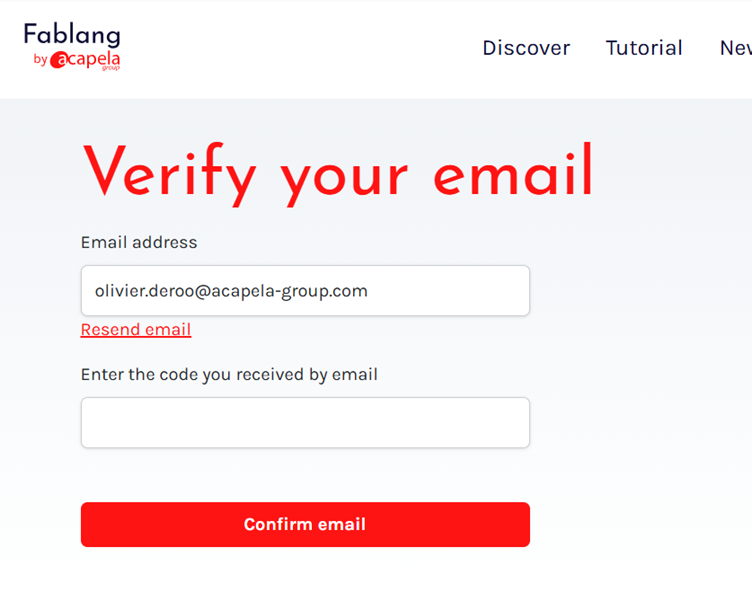
- Once confirmed, you can log in to your account.

Login
If your account has not yet been approved, you will see a notification.


Once approved, follow these steps to log in:
- Go to the login page.
- Enter your login credentials.
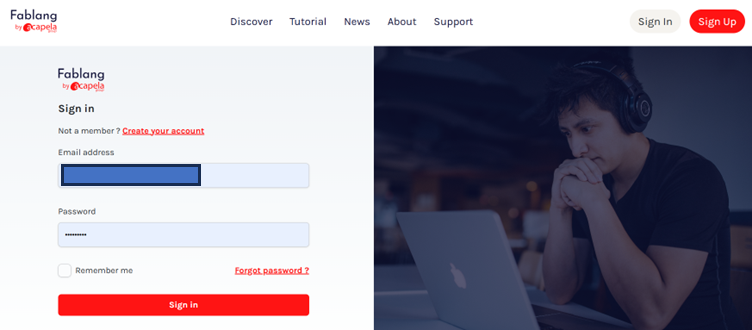
Steps for Creating a New Language
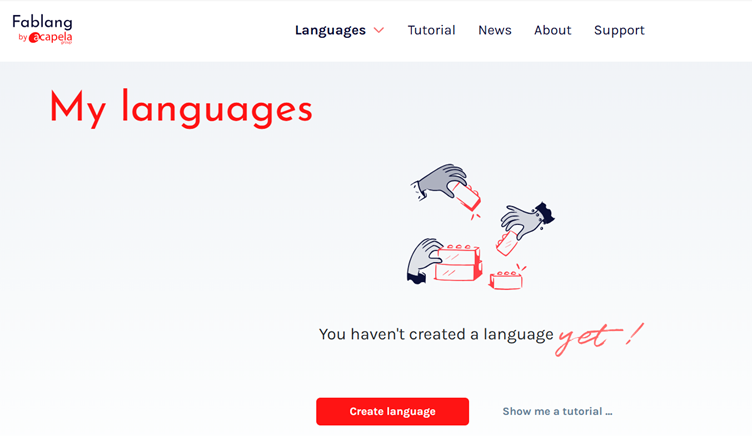
Once logged in, you can create a new language. For example, if you have an audio corpus in any language, you can build a new language model.
- Ensure you have the property rights and permission to use the data.
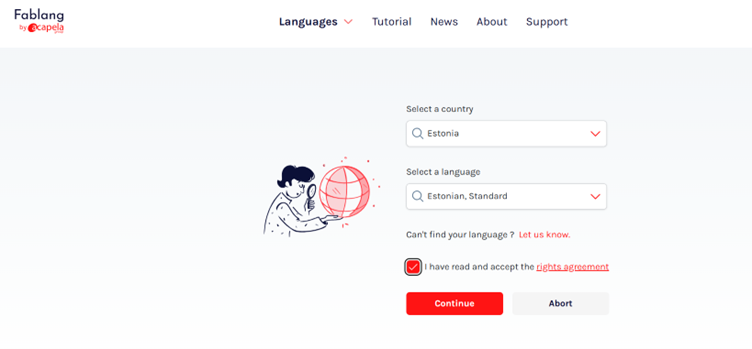

- Verify that the audio files meet quality standards (e.g., no background noise, no multiple speakers).
- Upload two required files:
- A README file explaining the data structure and transcription.
- The audio dataset.
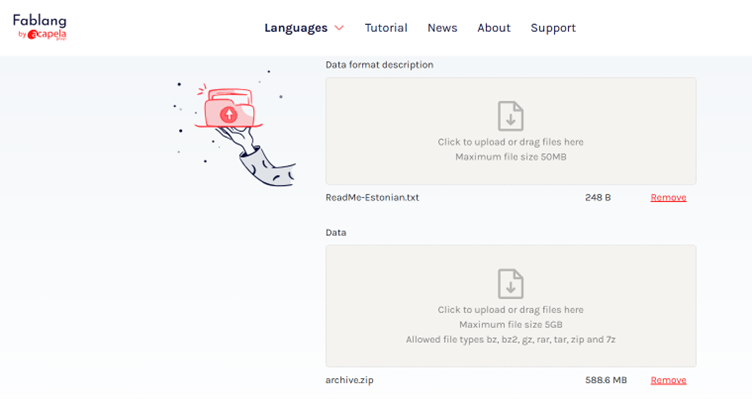
- Wait for the upload process to complete.
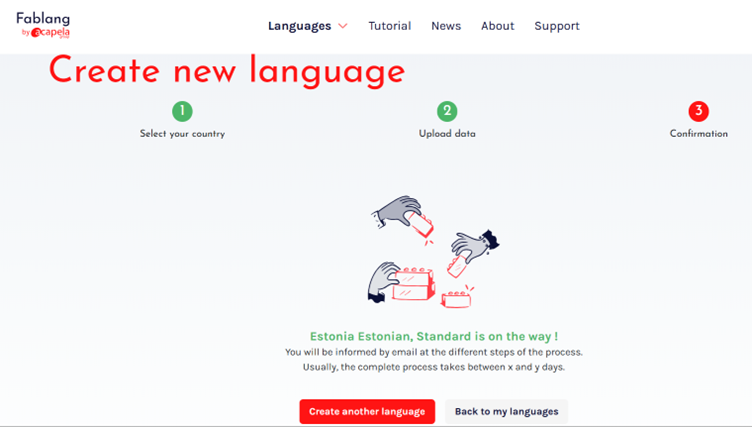
- Access the My Languages section to track the processing status.
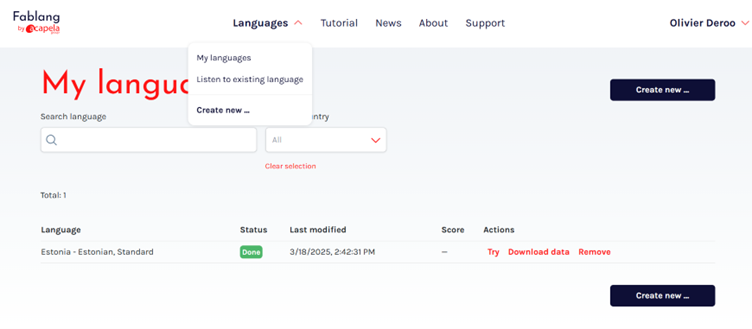
- The training and validation process may take from a few days to several weeks.
You will receive an email once the training has been completed.
- If you encounter any issues, contact the support team via the website.

Conclusion
This tutorial explains how to use the FabLang website to create and test new languages within the language development framework. It covers all steps, from testing existing languages to registering, logging in, and creating a new language.


